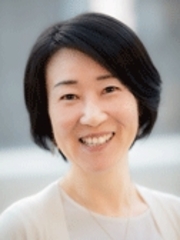Message from the Dean

Kozue AKIBAYASHI
Dean, the Graduate School of Global Studies
In the midst of the efforts to make the 20th century a more peaceful one than the previous century in which two world wars were waged and various armed conflicts and wars were fought in many parts of the world, the global pandemic emerged in 2020. We were once again faced by new agenda. Many countries closed their borders in order to stop the virus. Yet, with the movements of people inevitably lead to the global pandemic. Many questions were posed: What would have protected or would protect our lives and safety? How are we to be connected to each other and what does it meant to be connected? What would the global community look like now? These are not new questions but we realized clearly the need for new perspectives.
Graduate School of Global Studies (GSGS) at Doshisha University stared in 2010. Since then, our faculty members with various social sciences and humanities training have researched and explored the global issues. Our disciplines include sociology, political science, history, economics, area studies, international relations, queer studies or pedagogy. Our research projects are interdisciplinary and encompass various geographical areas. We, the faculty members of GSGS, will accommodate our expertise to help you to realize your ambition to be an active and efficient member of the global community and to make a more peaceful world. The educational resources of GSGS and the entire Doshisha University should also help you to pursue your research.
Connecting globally
One of the strengths of GSGS is, of course, our research on the global issues. That means we, the researchers at GSGS are connected beyond traditional academic fields and area studies. We believe global connection is necessary to address these global issues. It may not be an exaggeration to say that the global connection is inevitable for the survival of our planet.
Climate change is a good example. We have almost daily witnessed extreme weather conditions somewhere in the world. This can be called Climate Crisis, even. These abnormal weather conditions are attributed to global warming or CO2 emission that affect far beyond one country or region. It should be noted that the severity of the impacts of climate change differ from community to community or person to person, depending on where one lives, what kind of policies one’s government has, or what access one has to the resources. Sex, gender, or sexual orientation are also factored into the differences in the impacts. We hope you will pay close attention to such aspects of global issues.
What is communication?
Communication is crucial in the global society, your community, and in GSGS. It is our hope that you will learn not only various languages, but also the background cultures, or the meaning of multilingual communication. It is also important to expand the scope of your interest beyond the words that are spoken: words that are/can not be spoken, and the words that are not listened.
To communicate is to encounter different sets of values. At GSGS, faculty members and students come from various backgrounds. Your daily life is a leaning opportunity about the ways and significance of communication in pursing your research. We also prepare support system for students to conduct field work, to present your research, and to connect with researcher in and outside of Japan. Please make the best use of our support system.
Thinking critically
The origin of the world “critical” is in the ancient Greek, kriticos, meaning to judge or discern. The citizens of Athens were expected to be “critical” of their leaders. The citizens examined the policies, discussed them, and judged them. This what it means for them to be “critical.” For us living in the present time, it is essential to think critically of the abundant information or generative AI information. When pursuing your research, it is fundamental to gather data and information. Further, the ability to critically think and analyze them is vital, and we hope that you will gain such ability.
Thinking critically is to question what is taken for granted. At GSGS, encountering various sets of values may push you to reflect on your own values and your background that have nurtured your values. For example, the concept of gender, that is socially and culturally constructed knowledge about being women or men, reveals what is considered “natural” is actually not “natural.” Moreover, that is also about the power relations. Thinking critically is an essential part of conducting research.
Deepening your research may bring you many occasions of experiences for your values and thoughts to be shaken. Reading and examining data and materials may feel solitary. This may not sound easy. Yet, at GSGS, you will have faculty members, staff and fellow students to share your aspiration to solve global issues of your interest. This is where you will build your foundation to be an active and effective member of the global community.
Kozue AKIBAYASHI
Dean, the Graduate School of Global Studies
|
Message from Dean About Us International Partnerships Education Environment Human Resources Development Goals Policy for Conferral of Degrees Brochure |